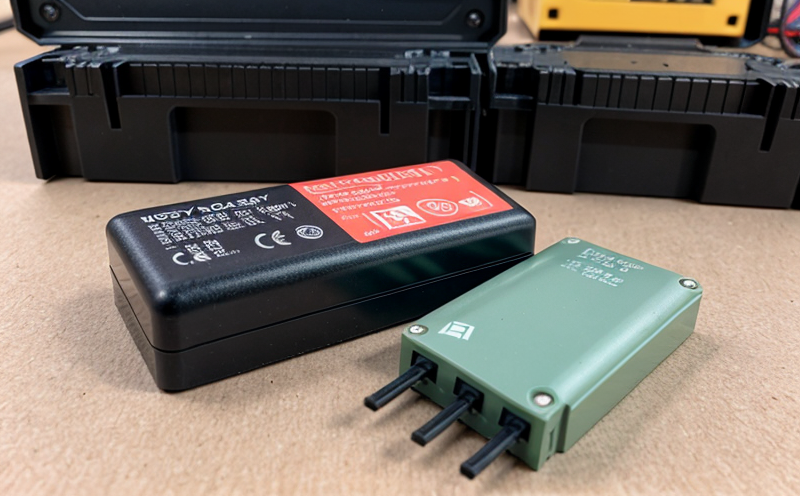ASTM F3117 Primary Cell and Small Pack Performance Testing
The ASTM F3117 standard provides a comprehensive framework for evaluating the performance of primary cells, such as lithium-ion batteries used in portable electronics. This service ensures that manufacturers meet the highest safety and reliability standards before their products reach the market.
Primary cells are essential components in numerous sectors including consumer electronics, medical devices, and automotive industries. Ensuring these cells perform reliably under various conditions is critical to preventing malfunctions and ensuring user safety.
The ASTM F3117 standard covers a range of tests designed to assess the performance characteristics of primary cells, which include:
- Electrochemical testing
- Dry short circuit test
- Voltage measurement during discharge
- Cycling under specified conditions
- Impedance measurements
- Internal resistance determination
The tests are conducted to simulate real-world conditions, ensuring that the cells can withstand stress and deliver consistent performance. This service is crucial for quality managers and compliance officers who need to ensure their products meet regulatory standards.
For R&D engineers, this testing helps in optimizing cell designs and materials. By understanding how different factors affect the cells' performance, they can innovate more robust and efficient solutions.
Procurement teams benefit from this service by ensuring that the cells they source are reliable and safe. This reduces the risk of product failures and enhances brand reputation.
Scope and Methodology
| Test Parameter | Description |
|---|---|
| Electrochemical Testing | Determines the cell's electrochemical properties under various conditions. |
| Dry Short Circuit Test | Evaluates the cell's ability to withstand short circuit conditions without failure. |
| Voltage Measurement During Discharge | Measures voltage output as a function of discharge time and current load. |
| Cycling Under Specified Conditions | Tests the cell’s performance over multiple charge-discharge cycles to assess durability. |
| Impedance Measurements | Determines the internal impedance of the cell, which is indicative of its health and condition. |
| Internal Resistance Determination | Metric for evaluating the efficiency of current flow within the cell. |
| Equipment Used | Description |
|---|---|
| Battery Tester Instrument | High-precision device used to perform electrochemical tests and impedance measurements. |
| Dry Short Circuit Test Fixture | A specialized fixture that simulates short circuit conditions without actual electrical connection. |
| Discharge Load Cells | Used to apply controlled current loads during discharge testing. |
| Cycling Chamber | A temperature-controlled environment for cycling tests under different temperatures and humidity levels. |
| Impedance Analyzer | An instrument that measures the impedance of the cell at various frequencies. |
Eurolab Advantages
EuroLab offers unparalleled expertise in ASTM F3117 testing, ensuring that our clients receive accurate and reliable test results. Our state-of-the-art facilities are equipped with the latest technology to conduct these tests under controlled conditions.
We have a team of highly qualified engineers who understand the nuances of this standard and can provide insights into optimizing cell performance for your specific needs. EuroLab also offers fast turnaround times, ensuring that you receive timely results without compromising on quality.
Our commitment to accuracy and reliability is reflected in our ISO 17025 accreditation, which ensures that all tests are conducted according to international standards. This guarantees that the results we provide are credible and can be trusted by regulatory bodies and industry stakeholders alike.
Environmental and Sustainability Contributions
- Reduces waste through accurate testing, ensuring only compliant cells proceed to the next stage of production.
- Enhances product safety by identifying potential issues early in the development process.
- Promotes sustainable manufacturing practices by encouraging the use of high-quality, reliable components.
- Contributes to regulatory compliance and reduces the risk of non-compliance penalties.
EuroLab's commitment to sustainability extends beyond just testing. We actively work with clients to identify ways they can reduce their environmental impact through more efficient production processes and material choices.





